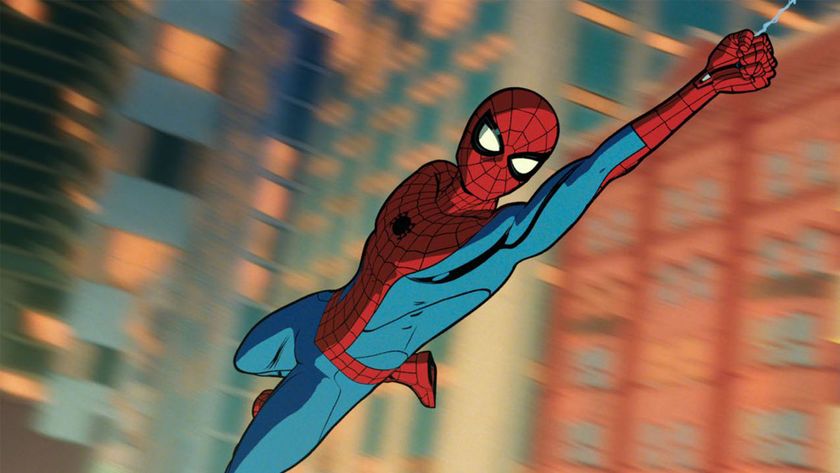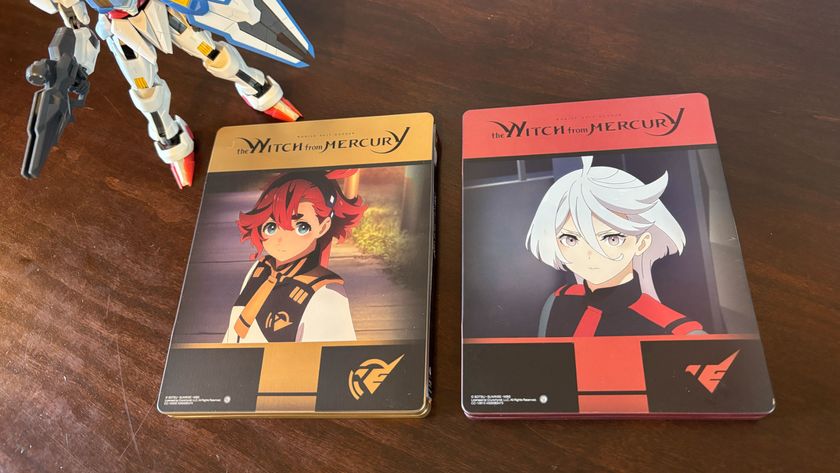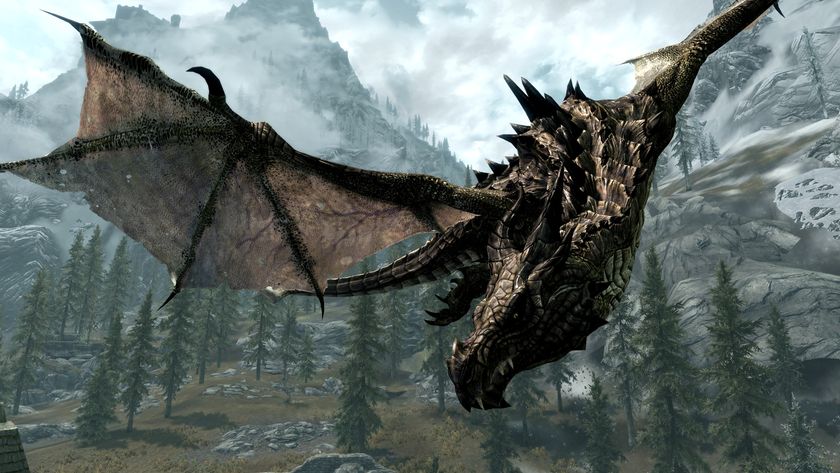Year in Review – the TV shows that defined 2019: Baby Yoda takes over the world
Richard Edwards looks back at the TV highlights from the last year
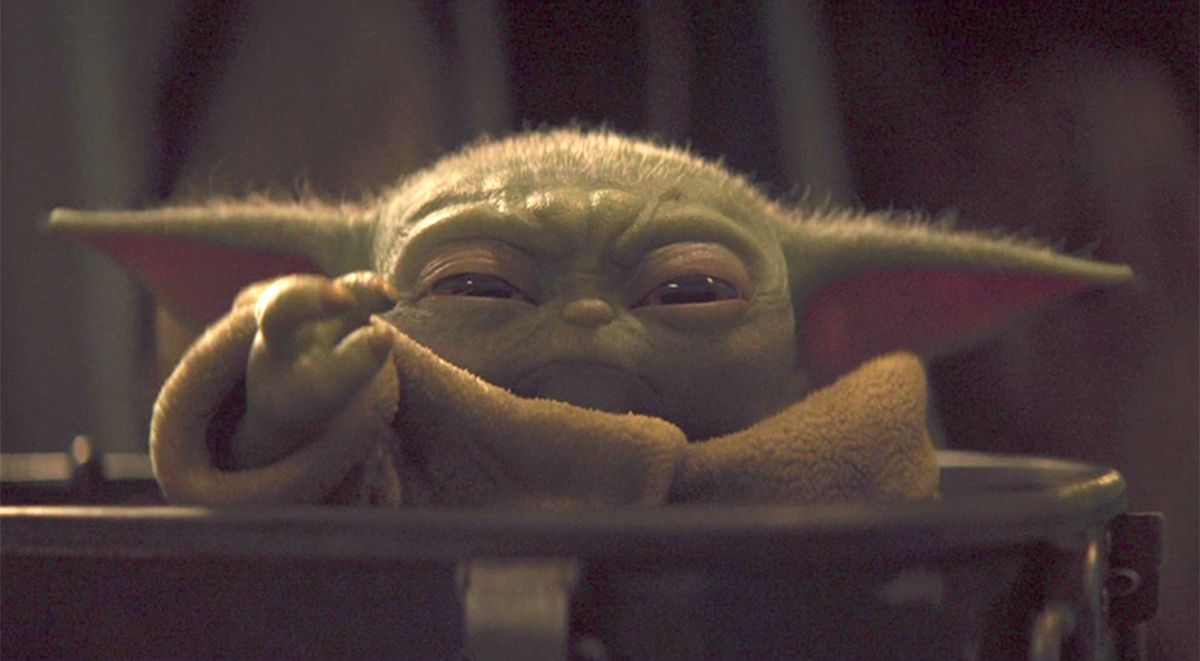
You know that old cliché that we’re living in a golden age of TV? The one that you’ve been hearing every year for the last decade? As 2019 comes to an end, it doesn’t look like that bubble’s going to be bursting any time soon.
“Television's only getting better,” says Darren Scott, editor of 12DOVE’s sister magazine SFX. “Particularly as broadcasters are shifting the way they deliver, and therefore the way we consume, new programmes.”
Big hitters like Game of Thrones may have come to an end (with divisive results), but exciting new shows like The Mandalorian, Russian Doll, Watchmen, and Chernobyl have stepped up to the plate. Meanwhile, Fleabag, Derry Girls, Star Trek: Discovery, Succession, Line of Duty, and Stranger Things all returned with excellent new runs – the very definition of water-cooler TV.
Most remarkably of all, there’s no sign that quantity is diluting quality, as a rapidly expanding streaming market (Disney Plus and Apple TV Plus both joined the party in November) continues to churn out consistently brilliant television programmes.
“The presence of more platforms can only be a good thing,” Scott believes. “Whether you're subscribing and watching certain shows, or just waiting for series to be released on shiny disc, having additional quality programming to watch is brilliant. Don't complain, we've never had it so good! Also, for someone like me who adores vintage television, it's a great opportunity to dip in and devour a series you might have missed the first time round, or only got into because of a new version. More platforms, I say!”
So as time calls a wrap on another vintage year of TV, we take a look back at the highlights.
More and more streaming
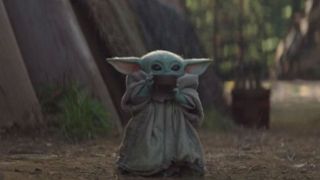
Staying up to date with all the must-watch new TV was already a challenge comparable to winning the Iron Throne – and that was when we just had traditional broadcast and cable channels, and streamers like Netflix and Amazon to deal with. Now Disney Plus and Apple TV Plus have thrown their offerings onto the table, while HBO Max, NBC’s Peacock, and even the bite-sized mobile platform Quibi (featuring Steven Spielberg’s After Dark) are set to follow suit in 2020. Plus, you'll want to keep your Netflix and Amazon subscriptions...
Sign up to the SFX Newsletter
Get sneak previews, exclusive competitions and details of special events each month!
If there was a single winner in 2019, it was Disney Plus. Despite not being released in various regions around the world – including the UK – the new streaming service managed to capture everyone's imaginations thanks namely to one small green creature: Baby Yoda, or, as he's officially called, "The Child". Baby Yoda memes have taken over the internet, and he's even appeared on the cover of various magazines. If you've been online in 2019, you've seen Baby Yoda. And if we gave away a "Person of the Year" award, it would probably go to the Force-using infant. All hail Baby Yoda!
Nostalgia+

The launch schedule for Disney Plus was strangely devoid of exciting new content. Okay, The Mandalorian – the first-ever live-action Star Wars TV show, precision-engineered to appeal to old-school fans of a galaxy far, far away – is the sort of show that’ll make people sign up all by itself, but otherwise the new stuff comprises documentaries, reality shows, and a “live-action” Lady and the Tramp. The first of the eagerly anticipated Marvel Cinematic Universe TV shows won’t make an appearance until 2020.
But Disney Plus was able to launch on the promise of its vast back catalogue of classic content – not least the chance to watch every episode of The Simpsons (albeit in controversially altered form). With Netflix having already had a massive hit with the 25-year-old Friends, and the BBC, ITV and Channel 4 collaborating on the nostalgia-fest of Britbox in the UK, old series are now just as important to the subscription TV landscape as new ones. As if we didn’t have too much to watch already…
Superheroes just flew off into a new frontier
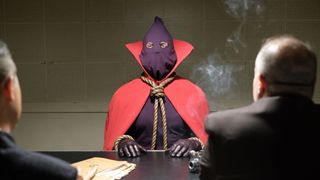
When season three of Jessica Jones signalled the end of Marvel and Netflix’s street-level TV universe, things weren’t looking too rosy for superheroes on the small screen. Sure, the CW has continued to do its thing with the Arrowverse shows, while DC Universe has unleashed a second season of Titans and has Stargirl on the way (shame Swamp Thing was cancelled after just one episode had aired). However, the real fun – and invention – has come away from the DC and Marvel universes.
Netflix’s The Umbrella Academy (based on Gerard Way and Gabriel Ba’s Image Comics series) brought a quirky, Wes Anderson sensibility to the story of a superpowered family, while Amazon’s The Boys showed what might happen if the Avengers were, A) managed by a multinational corporation, and B) a bunch of amoral assholes – with hilarious, and R-rated consequences.
But the standout has undoubtedly been HBO’s Watchmen. As has become tradition, Alan Moore’s had no involvement with the latest screen adaptation of his work, but Lost co-creator Damon Lindelof nonetheless crafted a sequel that ingeniously captured the essence of the original graphic novel. Picking up more than three decades after the original story, it’s a logical progression of the events that take place in the book, delivered with additional political edge. We may have to make the most of it while we can, however, as Lindelof has said it could be a one season deal.
Thrones ended...
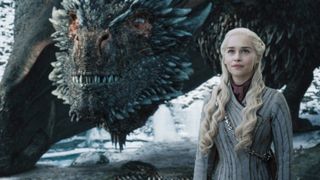
The most hyped TV event of the year was also the most divisive, as Game of Thrones wrapped up its eight-year saga in controversial style. From the so-dark-it’s-almost-unwatchable “Battle of Winterfell” to Daenerys’s transformation into a dragon-riding tyrant, every episode seemed to contain creative decisions expertly crafted to split the fanbase – to the point where fans started petitions to demand that HBO remake the season in a more satisfactory manner.
It wasn’t all disastrous – there were some wonderful moments, like the knighting of Brienne – but if the showrunners hadn’t tried to cram quite so much into a mere six episodes, perhaps it wouldn’t have felt so rushed and anti-climactic. Whatever your thoughts on the season, the fan reaction definitely wasn’t how HBO was expecting the last act of its biggest ever show to go down.
...and the search for a new Thrones began
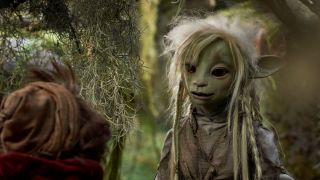
The end of Game of Thrones left a colossal void in the TV fantasy landscape, but broadcasters have already moved to fill it. First out of the blocks was The Dark Crystal: Age of Resistance. Netflix’s beautiful prequel series to Jim Henson’s 1982 fantasy movie may have been populated entirely by puppets, but it was every bit as ambitious as its live-action cousins – and never shirked on the darkness.
Meanwhile, the BBC and HBO showed all the ways 2007’s The Golden Compass got it wrong with its brilliant adaptation of Philip Pullman’s His Dark Materials. Now the giant eye of Sauron has turned to Netflix for its Henry Cavill-starring adaptation of The Witcher, epic fantasy with the scope, sex and violence to be Game of Thrones most natural successor – at least until Amazon’s Lord of the Rings TV series begins its epic quest. The Witcher-shaped anticipation levels are so high they might just break the internet when the show arrives on December 20, 2019.
Phoebe Waller-Bridge became an international treasure
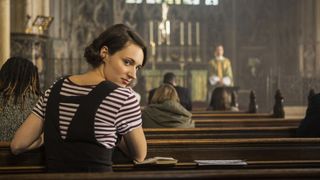
She was already pretty much there, of course, but 2019 sealed the deal. Phoebe Waller-Bridge may have taken a step back from the second season of Killing Eve, with Emerald Fennell taking over showrunning duties, but her fingerprints were still all over a show that kept on mixing a compelling cat-and-mouse spy drama with some of the sharpest dialogue on TV.
But Waller-Bridge’s pièce de resistance was undoubtedly season two of the peerless Fleabag. The second (and final) outing for the show did the impossible by being every bit as brilliant as the first, plumbing new depths of embarrassment for the title character without forgetting those knowing winks to the camera. It also created a new meme in the form of the Hot Priest. Now, 2020 is threatening to be the year Phoebe Waller-Bridge goes stratospheric, with a scripting credit on new Bond movie No Time to Die and a rather lucrative $20 million deal with Amazon.
The anthology is here to stay
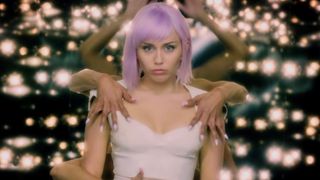
Black Mirror ended 2018 with one of the most innovative bits of television ever made, with the interactive “Bandersnatch”, and the Charlie Brooker anthology show’s influence continued into 2019. As well as the (truncated) fifth season of Black Mirror itself on Netflix, plenty more got in on the act of telling one-off stories on the small screen.
The biggest news was the reboot of the original anthology classic The Twilight Zone, helmed by Get Out/Us director Jordan Peele, which didn’t always hit the mark, but has nonetheless been renewed for a second season. Horror fans got their own take on the format, as The Walking Dead make-up supremo Greg Nicotero updated 1982 George A Romero/Stephen King team-up Creepshow for scare-streamer Shudder. And Netflix again pushed the envelope with the hard sci-fi of Love, Death & Robots, a genuinely innovative collection of animated shorts based on stories from top genre authors. A second season is already confirmed.
Real-world drama as compelling as fiction
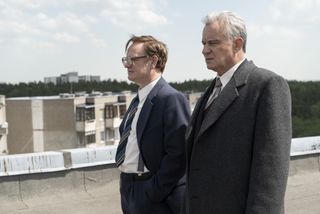
The most arresting show on TV, by some distance, was Sky Atlantic’s Chernobyl. The scenes depicting the after-effects of radiation exposure were painful, uncomfortable viewing, but the five-part series was just as memorable as a complex political drama set in the former Soviet Union.
Meanwhile, former Doctor Who showrunner Russell T. Davies’s Years and Years gave its take the next decade of British history in an uncompromising but frighteningly plausible way – let’s all hope his vision of the future doesn’t come to pass, even if some of the tech looked a lot of fun…
Richard is a freelancer journalist and editor, and was once a physicist. Rich is the former editor of SFX Magazine, but has since gone freelance, writing for websites and publications including 12DOVE, SFX, Total Film, and more. He also co-hosts the podcast, Robby the Robot's Waiting, which is focused on sci-fi and fantasy.
Most Popular






